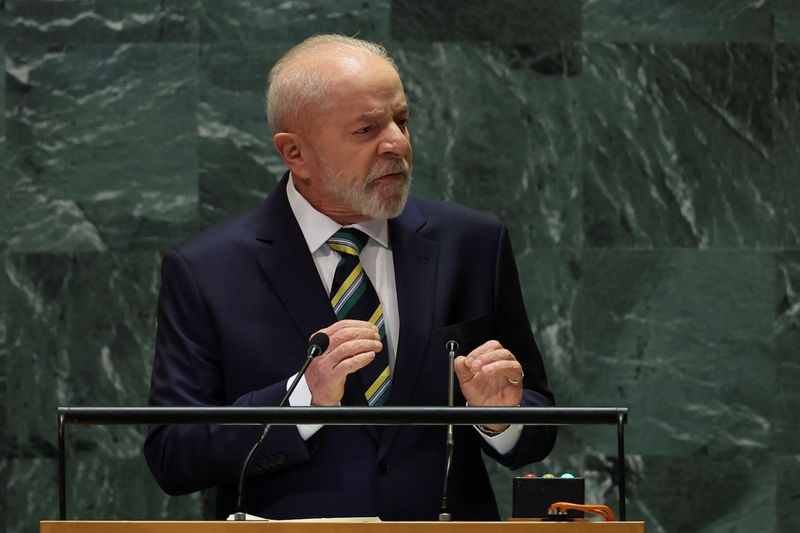UNITED NATIONS (Reuters) -Brazilian President Luiz Inacio Lula da Silva advocated on Tuesday for a plan for talks between Russia and Ukraine to end their conflict, a proposal already rejected by Ukraine's President Volodymyr Zelenskiy.
Lula, who has spoken to Russian President Vladimir Putin by telephone about the proposal, did not give any details of the six-point plan in his speech at the opening of the United Nations General Assembly.
His foreign policy adviser Celso Amorim will seek support for the plan from representatives of 20 countries when they meet in New York on Friday, Brazilian diplomats said.
Zelenskiy has rejected the proposal as "destructive" and insisted his summit initiative is the only viable peace format.
The Chinese-Brazilian proposal, which was made public in May after Amorim visited Beijing, calls for de-escalating the situation and the resumption of direct dialogue without requiring Russia to pull back.
Friday's meeting will include countries from the Global South, but not European governments that are the staunchest supporters of Ukraine. Among those invited are Colombia, Egypt, Indonesia, Mexico, Saudi Arabia, South Africa and the United Arab Emirates.
"The intention is to listen to what these countries can bring, create a critical mass and review these points," a Brazilian official told Reuters. "Many countries want to listen, including the Europeans."
In his speech, Lula warned that the conflict in Gaza is expanding "dangerously" to Lebanon, adding to calls for a ceasefire.
"The right of defense has turned into the right of revenge, which prevents an agreement to release hostages and postpones a ceasefire," Lula said.
The Brazilian leader repeated his country's plea for reform of the United Nations, saying the global body was not doing its job representing the world and stopping wars.
He criticized the tens of billions of dollars spent every year on military arsenals and said these funds should be used to eliminate poverty and fight climate change.

Lula called for revision of the U.N. charter to revitalize the role of the General Assembly in promoting peace and reform of the multilateral institution.
"The exclusion of Latin America and Africa from permanent seats on the U.N. Security Council is an unacceptable reflection of the colonial past," he said.